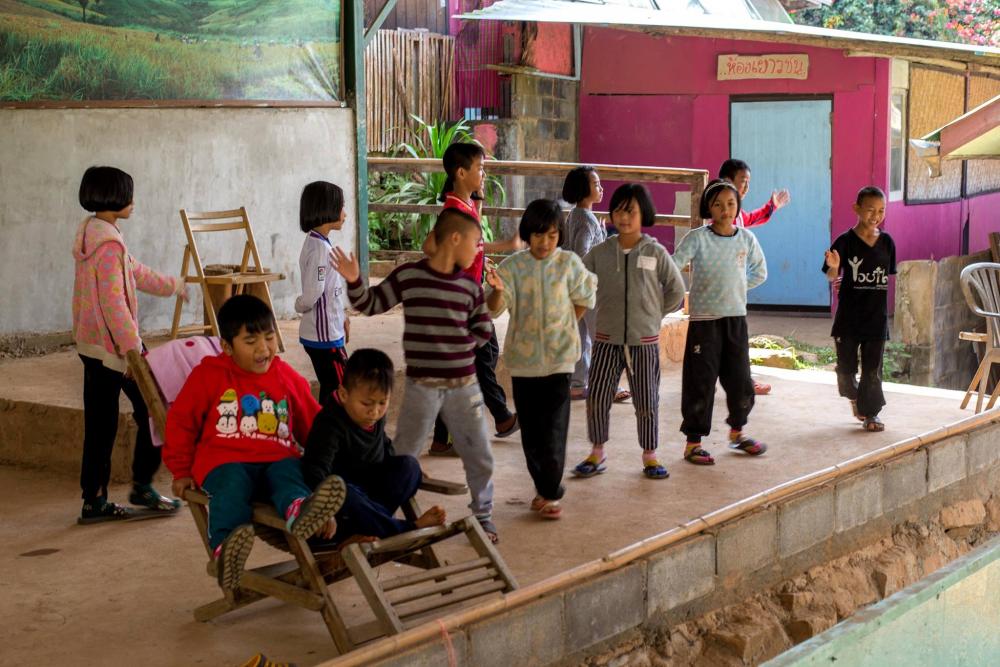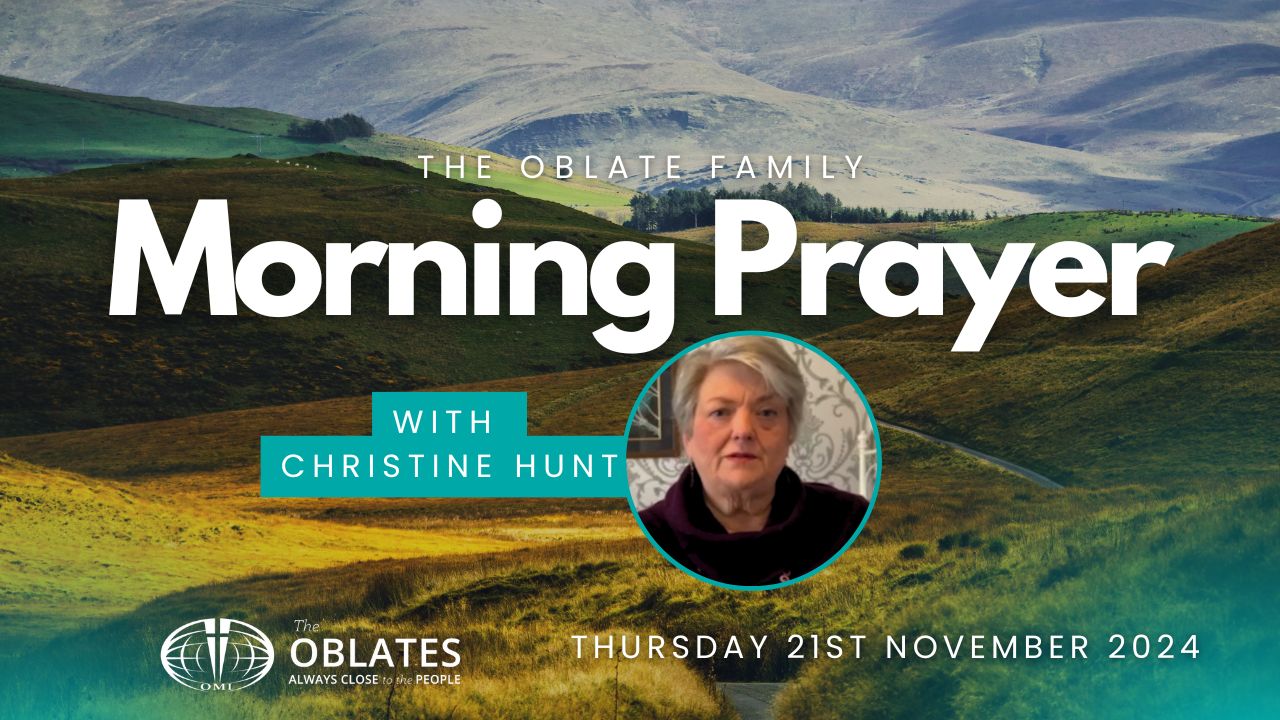Fr. Domenico RODIGHIERO, an Italian Oblate working in Thailand, tells of the difficulty the children of Mankhaw encounter in order to obtain an education.
I have been living for eight months now in my new home, a small mountain village, and from there I take care of two small parishes scattered among the mountains. Mankhaw, the village where I live, has about two hundred Catholics …
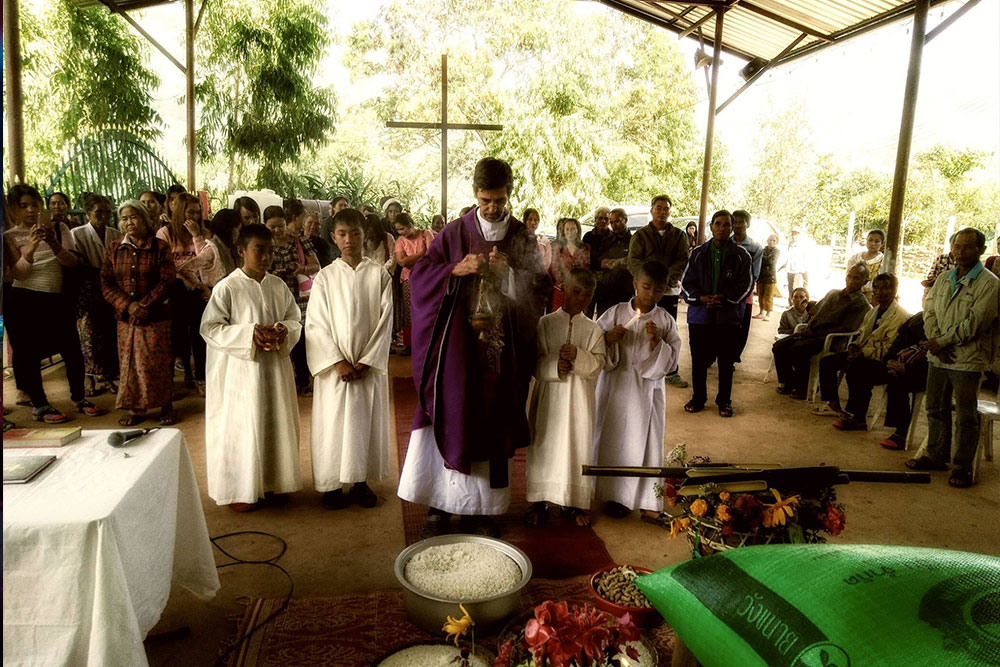
The village is located deep in the Thai mountains and it is very difficult to move around from here, especially in the rainy season. That’s why the children of my parishioners attend a small school run by the Border Police (no teacher would agree to move into the forest with the risk of being isolated for long periods of the year). The elementary school has about sixty children, from the first to the sixth grade and, often, lessons are made to “combined” classes due to lack of teachers. The level of education, as you can imagine, is minimal, but at least the children learn to read and write. Many of these children are Catholic; they attend our parish and participate in the regular activities that we offer.
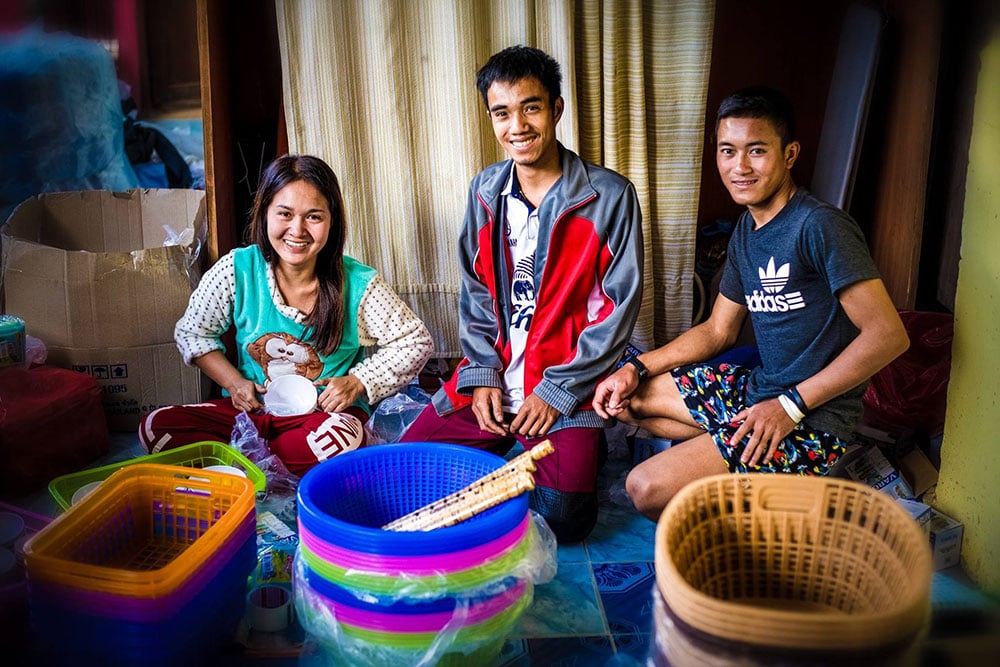
It is lovely to see the these children’s simplicity and their ability to interact; how they can have fun being together and how they have learned to behave politely and with respect towards others. They rarely fight; they are usually cheerful and jovial. Certainly such an isolated environment causes great risks for their growth: the lack of opportunities, the difficulty in discovering their talents and using them fruitfully creates frustration and, often, especially the boys, start drinking early and even making use of really unhealthy substances. It is shocking to see an adolescent with no motivation, unable to engage in something constructive and rewarding, a young man who has no other purpose in life than to drink with friends.
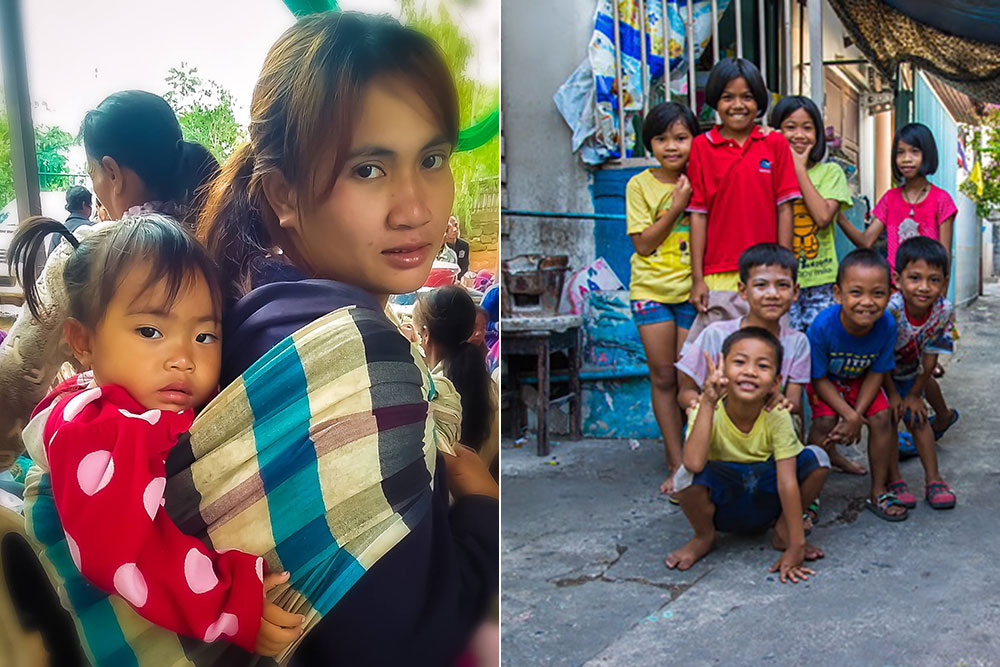
My job here is to help these little children, as much as possible, to develop themselves by giving them opportunities. With my confreres, we have made a commitment to provide for their education, from elementary to high school. My predecessor started sending them to some Catholic schools in the city where they provide good education. Those in charge of these schools do not ask for a fixed tuition, as they do with other wealthier boys; they ask for a contribution for school material. It is not a trifle when one considers that this contribution is added to travel expenses (here very high, given the location of the village) and it becomes an economic burden for people who do not earn more than 100-50 Euros per month.

This Christmas, I would like to give my children the gift of a small library and a music room, a healthy environment where they can be together, have fun, appreciate the beauty of a good book and music.
(Photo credits – Fr. Domenico RODIGHIERO)
published originally on omiworld.org

